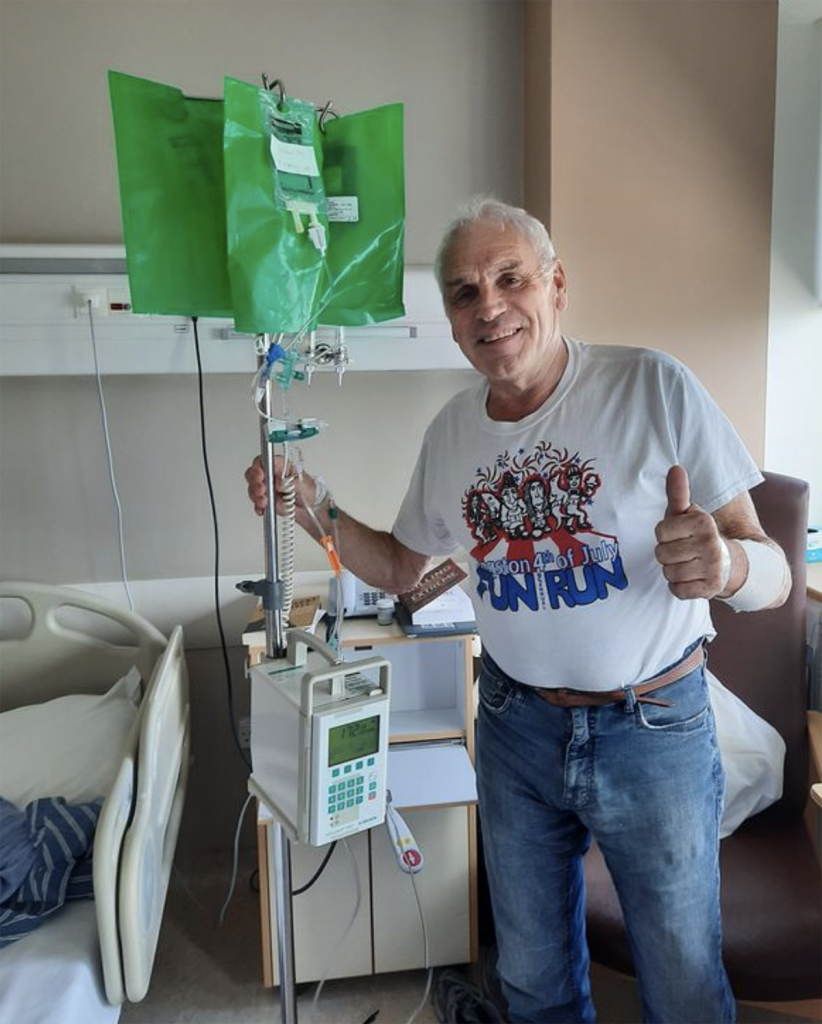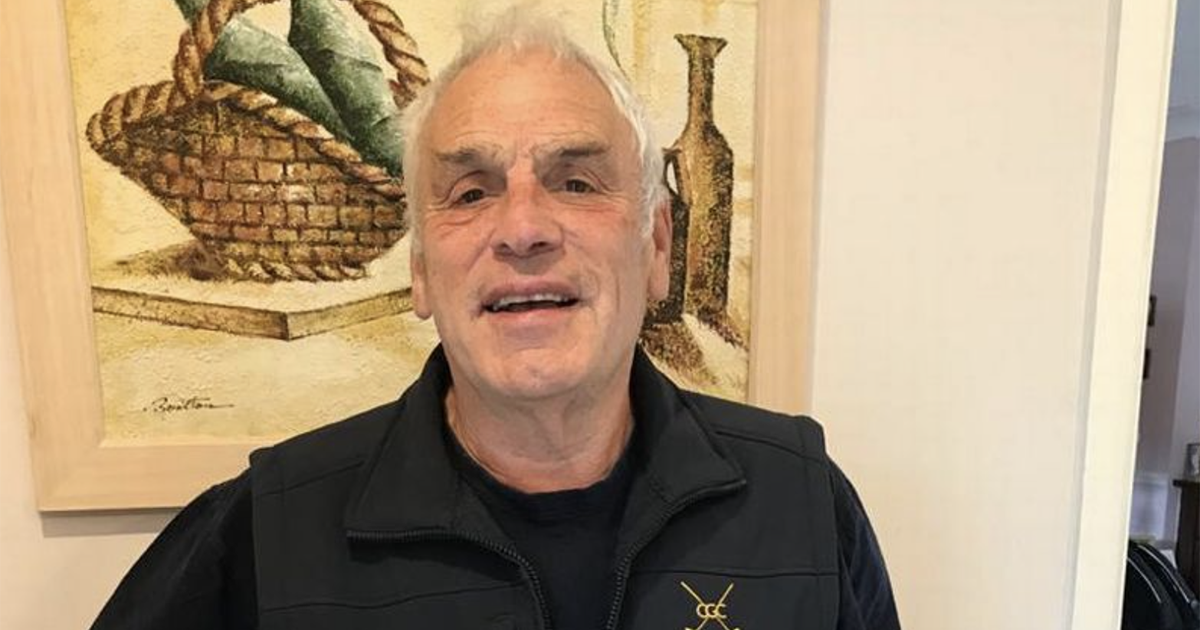Understanding Lymphoma
- A man from Dublin, Ireland, thought he pulled a muscle while gardening at the start of the Covid-19 pandemic, but it turned out to be lymphoma.
- Now, Paul Markey, 70, is happy to be on the road to recovery, he said. He even kept that joyful spirit during his cancer battle, something SurvivorNet experts say is vitally important when fighting cancer.
- Lymphoma is a cancer of the immune system that affects infection-fighting cells called lymphocytes. And there are more than 40 different types of lymphoma.
- One of those 40 plus types is non-Hodgkin follicular lymphoma, which is what Markey was diagnosed with nearly two years ago. This type of non-Hodgkin lymphoma is typically a slow-growing or indolent form of the disease that arises from B-lymphocytes, making it a B-cell lymphoma.
"In July 2020, I was gardening and I got a pain in my back," Paul Markey told DublinLive. "I thought it was from lifting the flower pots. It didn't go away and I went to the doctor, he gave me an injection and it didn't work, so he said I should go and get an MRI."
Read More
Before being declared cancer-free, Markey underwent chemotherapy from September to December 2020, at which point he was told the cancer was 90% gone.
"I was lucky that I wasn't really ill with it the way some people are, apart from some nausea," Markey said. "Of course, I lost all of my hair. I didn't lose my eyebrows or eyelashes, but I lost it everywhere else."
Then, the great news came in April 2021: Markey was told the cancer was "completely gone." Five more months would pass before doctors confirmed in September 2020 that he was cancer-free.
"I'm delighted with myself," he said. "There's 200,000 cancer survivors in Ireland; it's not all bad news when you get the diagnosis."
Understanding Lymphoma
Lymphoma is a cancer of the immune system that affects infection-fighting cells called lymphocytes. And there are more than 40 different types of lymphoma.
One of those 40 plus types is non-Hodgkin follicular lymphoma, which is what Markey was diagnosed with nearly two years ago. This type of non-Hodgkin lymphoma is typically a slow-growing or indolent form of the disease that arises from B-lymphocytes, making it a B-cell lymphoma, according to the Lymphoma Research Foundation.
"Lymphoma is split up into a number of different categories," Dr. Elise Chong, a medical oncologist at Penn Medicine, SurvivorNet previously told SurvivorNet.
What Kind of Lymphoma Do You Have? Why Your Type Matters
"The first distinguishing breakpoint, if you will, is non-Hodgkin lymphoma versus Hodgkin lymphoma," she adds, "and those sound like two different categories. But non-Hodgkin lymphoma comprises the majority of lymphoma, and Hodgkin lymphoma is a single specific type of lymphoma."
Hodgkin lymphoma has distinctive, giant cells called Reed-Sternberg cells. The presence of these cells, which can be seen under a microscope, will help your doctor determine which of the two lymphoma types you have.
There are a few other important differences between non-Hodgkin lymphoma and Hodgkin lymphoma to note. For one thing, non-Hodgkin lymphoma is much more common. And you're more likely to be diagnosed with it after age 55, just like Markey. People usually develop Hodgkin lymphoma at a younger age.
It should be noted that another difference between these two types of lymphoma is that non-Hodgkin lymphoma is more likely to spread in a random fashion and be found in different groups of lymph nodes in the body, while Hodgkin lymphoma is more likely to grow in a uniform way from one group of lymph nodes directly to another.
These two different types of lymphoma behave, spread and respond to treatment differently, so it is important for you to know which type you have.
Staying Positive During Cancer
Dr. Zuri Murrell, a colorectal surgeon at Cedars-Sinai Medical Center in Los Angeles, previously told SurvivorNet that he can tell which of his patients will thrive while fighting cancer solely from their attitude.
And "a positive attitude is really important," he said.
Markey made it a point to stay positive during his lymphoma battle, and is now elated, considering he beat the disease.
Remember: If you've just been diagnosed with cancer, negative feelings are normal. Men and women react in different ways anger, shame, fear, anxiety. It is to be expected.
Experienced doctors will tell you that people who find a way to work through the emotions and stay positive, like Markey, end up doing better.
Learn more about SurvivorNet's rigorous medical review process.


